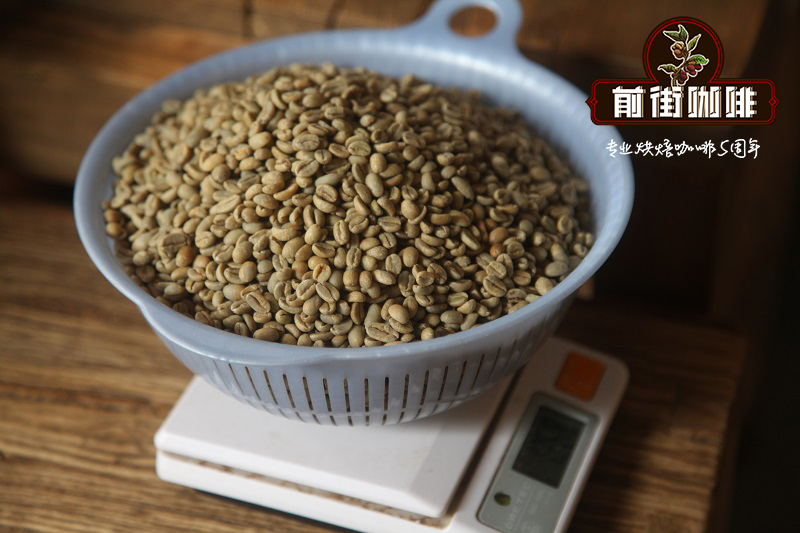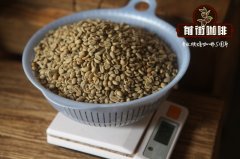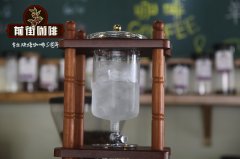Is the coffee bean of Arabica variety in Chiapas plateau of Mexico good to drink? What's the flavor and taste?

Professional coffee knowledge exchange more coffee bean information please follow the coffee workshop (Wechat official account cafe_style)
Is the coffee bean of Arabica variety in Chiapas plateau of Mexico good to drink? What are the flavor and taste characteristics?
Mexico is one of the largest producers of organic certified coffee.
Because of geographical factors, most of them are sold to the United States.
The country's coffee industry began in the 19th century.
Introduced through Jamaica, mainly planted with Arabica varieties.
The producing area is close to Soconusco in Guatemala on the Pacific coast.
Early 1990s
The southern state of Chiapas has become the most important coffee producing area in Mexico.
It produces about 275000 tons of coffee a year, accounting for 45 per cent of the country's production.
More than 2 million of Mexicans depend on coffee for a living
75% of Mexican coffee farmers work on less than two hectares of land.
These small farmers produce about 30% of the country's coffee every year.
The rest is produced by large or high-capacity farms.
Since 1988, especially in Chiapas
The government provides simple loans to farmers and encourages the development of forest land
Encourage poor coffee farmers to increase their production,
Expand the planting area to increase income.
Chiapas is located on the plateau bordering Guatemala at the southern tip of Mexico.
Conducted by the National Institute of Mexico in 1991
A study on the system of protecting the Rights of Local Aborigines
And through the formulation of product trade norms to enhance the protection of indigenous residents.
Under such purposes and conditions
Cooperative organizations in various districts are springing up like bamboo shoots after a spring rain.
OPCAAC's full name is Organizaci ó n de Productores
De Caf é de Á ngel Albino Corzo
It's an organic smallholder production organization in Chiapas.
OPCAAC founded in 1995
Construct the management system of farm
Independent production and marketing information that emphasizes the openness and transparency of coffee farmers
And set standards to avoid over-development of land.
The organization gives small loans to its members,
Assistance in technical training, social activities, etc.
And continue to pay attention to the development of organic agriculture and ecological protection.
OPCAAC takes sustainable operation as its purpose.
Create the value of the local coffee industry
Through fair trade and ecologically conserved agricultural production
Improve the quality of life of local farmers. OPCAAC
Members use environmentally friendly farming methods to reclaim land
Through the development of regional organizations
Establish sustainable economic and social management and improve the quality of products.
Producing area: Chiapas Plateau
Grading: Altura
Producer: OPCAAC Organic small Farmers production Organization
Treatment: traditional washing
Variety: Kaddura (Caturra)
Sea pull: 900m to 1100 m
Flavor: low acidity of nuts, spices, cream, cool herbs, smooth and mild taste.
Located in the southernmost part of Mexico, Chiapas is a coffee bred from a high altitude of 2500 murmur4000m and fertile volcanic soil, with a smooth taste and moderate acidity, and has won the UTZ' good Coffee Certification. The palate is mild and full of delicate aromas, with mild acidity on the palate, creamy silky and smooth, with a finish of drupes, nuts and spices.
Mexico is one of the largest producers of organic certified coffee. OPCAAC (Organic small Farmers' production Organization) was founded in 1995, which constructs a farm management system, emphasizes the open and transparent independent production and marketing information of coffee farmers, and sets standards to avoid over-exploitation of land. OPCAAC aims to create the value of the local coffee industry and improve the quality of life of local farmers through fair trade and eco-friendly agricultural production. OPCAAC members use environmentally friendly farming methods to reclaim land, establish sustainable economic and social management and improve the quality of their products through the development of regional organizations.
Qianjie cuisine is recommended:
V60 filter cup, 15g powder, water temperature 90 degrees, grinding 3, water powder ratio close to 1:15
Steaming in 30 grams of water for 30 seconds
Section: inject water until 110ml is cut off, wait for the water level to drop to 1pm 3 and then slowly inject water until 225ml stops.
That is, 30-125-225g
Other suggestions for trickling extraction:
Normal pressure, recommended grinding degree of 3.5-4 / water temperature 90 °C
Philharmonic pressure, recommended 2.5 grinding degree, water temperature 90 °C
Hand punch: 3.5 degree of grinding, water temperature 91 °C
3.5 Grinding-90 degrees water temperature
Important Notice :
前街咖啡 FrontStreet Coffee has moved to new addredd:
FrontStreet Coffee Address: 315,Donghua East Road,GuangZhou
Tel:020 38364473
- Prev

Unique Guatemalan coffee Guatemala Platanillo Manor Elephant beans how to do hand flushing? Yes
Professional coffee knowledge exchange more coffee bean information please follow the coffee workshop (Wechat official account cafe_style) unique Guatemalan coffee Guatemala Platanillo estate elephant beans how to make? What kind of coffee do you have? Coffee has contributed to the economic situation in Guatemala over the past century, and it is estimated that there are about 120000 coffee producers in the area, which is a dangerous place.
- Next

What are the flavor and taste characteristics of Mexican organic coffee beans-Chiapas PB beans? Qianjie recommended rush
Professional coffee knowledge exchange more coffee bean information please follow the coffee workshop (Wechat official account cafe_style) Mexican organic coffee beans-Chiapas PB beans flavor and taste characteristics? What is the recommended cooking method in Qianjie? Mexico is located at the northern end of Central America, the uppermost edge of the coffee production belt, and the coffee producing areas of Mexico extend from coatepec (Cortepe) and veracruz (Wei).
Related
- Detailed explanation of Jadeite planting Land in Panamanian Jadeite Manor introduction to the grading system of Jadeite competitive bidding, Red bid, Green bid and Rose Summer
- Story of Coffee planting in Brenka region of Costa Rica Stonehenge Manor anaerobic heavy honey treatment of flavor mouth
- What's on the barrel of Blue Mountain Coffee beans?
- Can American coffee also pull flowers? How to use hot American style to pull out a good-looking pattern?
- Can you make a cold extract with coffee beans? What is the right proportion for cold-extracted coffee formula?
- Indonesian PWN Gold Mandrine Coffee Origin Features Flavor How to Chong? Mandolin coffee is American.
- A brief introduction to the flavor characteristics of Brazilian yellow bourbon coffee beans
- What is the effect of different water quality on the flavor of cold-extracted coffee? What kind of water is best for brewing coffee?
- Why do you think of Rose Summer whenever you mention Panamanian coffee?
- Introduction to the characteristics of authentic blue mountain coffee bean producing areas? What is the CIB Coffee Authority in Jamaica?

